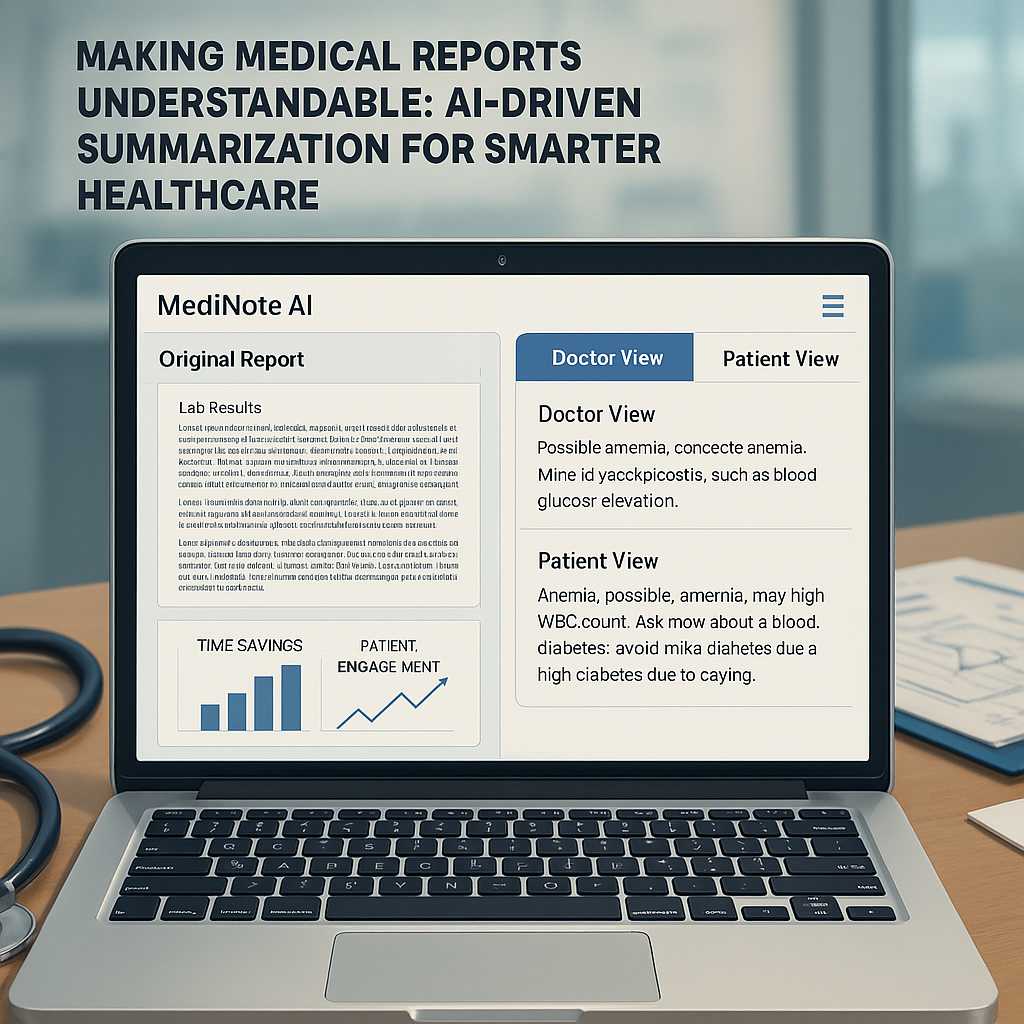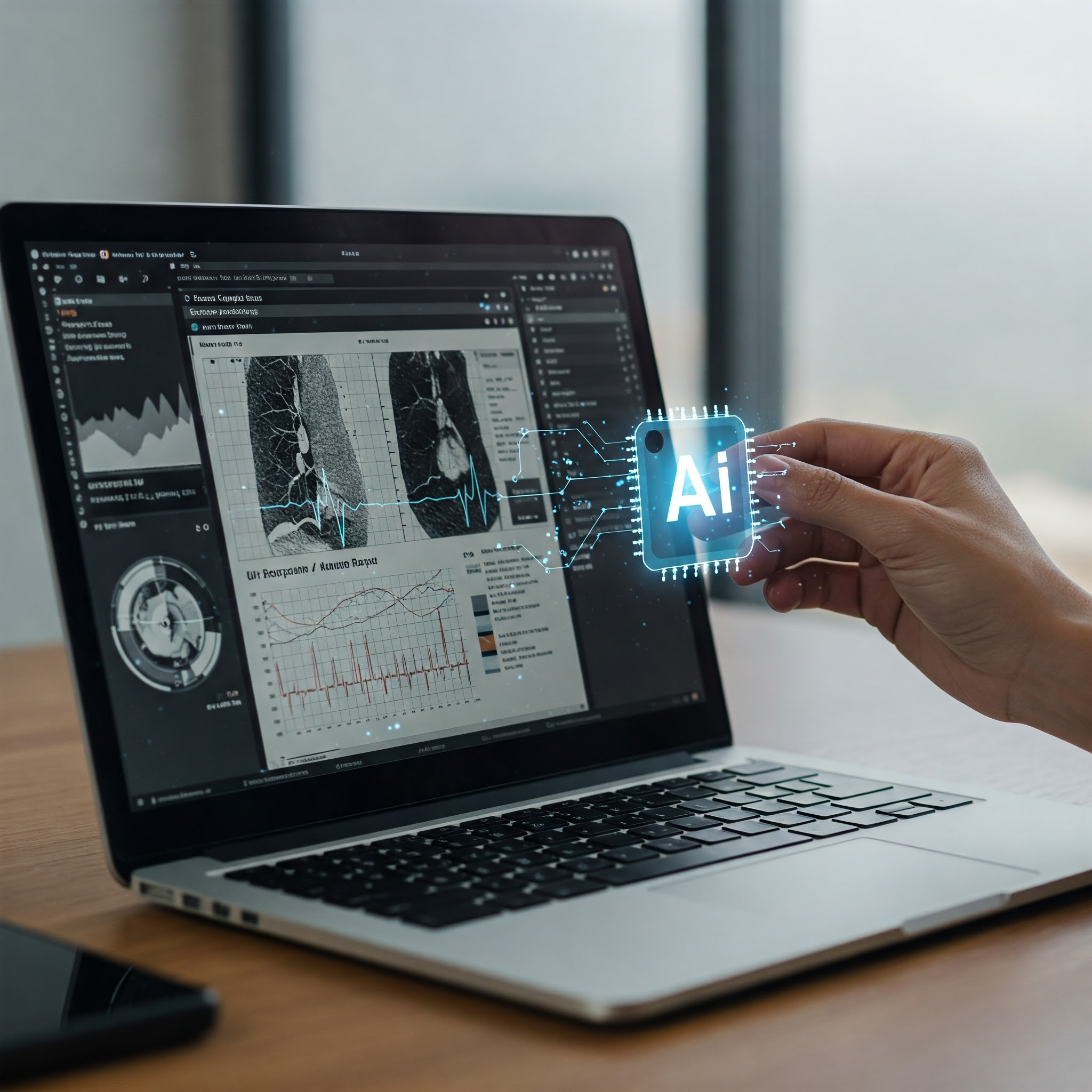Igniting Powerful INSIGHTS
Challanges
Medical reports often contain dense clinical jargon and technical terms that are difficult for patients to understand and time-consuming for physicians to review. In a digital healthcare environment where patients frequently upload diagnostic documents—such as lab results, radiology scans, and discharge summaries—there's a critical need for faster and clearer communication. The client, a telemedicine provider with a large digital user base, identified that both patients and doctors were struggling with report comprehension. Patients felt overwhelmed or confused by unfamiliar medical terminology, while clinicians were spending valuable consultation time explaining basic details. This created bottlenecks in the workflow, reduced patient satisfaction, and added pressure on healthcare providers. The client required a solution that could automatically process uploaded documents and present them in both a clinically relevant and patient-friendly format.
Complexity and Innovation
The complexity of MediNote AI stemmed from the diversity of medical documents and the need for nuanced understanding of clinical language. Different types of reports—like blood tests, radiology interpretations, and referral notes—use unique terminologies, abbreviations, and formatting styles. The system had to be capable of reading this unstructured text, identifying key medical insights, and generating meaningful summaries tailored to different audiences. Furthermore, it needed to produce two distinct versions of each summary: one optimized for doctors (focused and medically precise), and one for patients (simplified and easy to grasp). The innovation lies in this dual-summarization approach, powered by large language models that were fine-tuned for healthcare communication. By integrating natural language processing with domain-specific knowledge, MediNote AI offers a flexible, intelligent assistant that enhances both clinical productivity and patient understanding.
Market Context and Opportunity
As healthcare becomes increasingly digital, the volume of unstructured data in the form of medical documents continues to grow. While electronic health records (EHRs) are widely adopted, many diagnostic results are still uploaded as scanned PDFs or raw text formats, often leaving patients without a clear understanding of their own health status. Simultaneously, doctors are under pressure to see more patients in less time, leaving little room for deep document review during appointments. This creates a major gap in care: patients are disengaged, and providers are overloaded. The demand for tools that improve comprehension, reduce administrative burden, and enhance patient autonomy is stronger than ever. MediNote AI addresses this need directly by simplifying communication between patients and healthcare professionals, making it a highly relevant and scalable solution in the modern healthcare ecosystem.
Client Collaboration
The project was undertaken for a client operating a digital healthcare platform offering online consultation and diagnostic services. Their users frequently upload medical documents to the platform, often without receiving timely explanations of the results. Recognizing the need to enhance patient engagement and reduce the information gap, the client sought an AI-based solution to integrate into their existing web and mobile infrastructure. Through collaborative development and testing cycles, MediNote AI was implemented to automatically summarize uploaded reports into two parallel versions—one for clinicians and one for patients. This enhancement became a key feature of the platform, improving both user satisfaction and operational efficiency.
Development followed a structured approach focusing on practical implementation and user experience:
- Requirement Analysis: Identified the most common document types and report formats used by the platform.
- Preprocessing Pipeline: Built a system to extract text from PDFs and images using OCR technology.
- Dual Summarization Model: Developed models to generate distinct summaries for clinician and patient views.
- UI/UX Integration: Created a simple interface with toggles for "Doctor View" and "Patient View."
- Feedback Loop: Implemented user rating system for continuous model improvement.
MediNote AI delivered significant improvements to the client's platform:
- Time Savings: Doctors spent substantially less time reviewing full reports.
- Patient Engagement: Marked increase in users reading and understanding their own results.
- Health Literacy: Fewer follow-up questions from patients regarding report interpretation.
- Speed: Quick summarization completed within seconds of report upload.

MediNote AI fills a crucial communication gap in modern healthcare by making medical reports easier to digest for all stakeholders.
- Dual-Audience Communication: Creates tailored summaries that serve both clinical and patient needs simultaneously.
- Information Accessibility: Transforms technical medical data into actionable insights for improved health literacy.
- Workflow Enhancement: Streamlines the consultation process by reducing time spent on document explanation.
- Patient Empowerment: Enables patients to take a more active role in understanding and managing their health.

